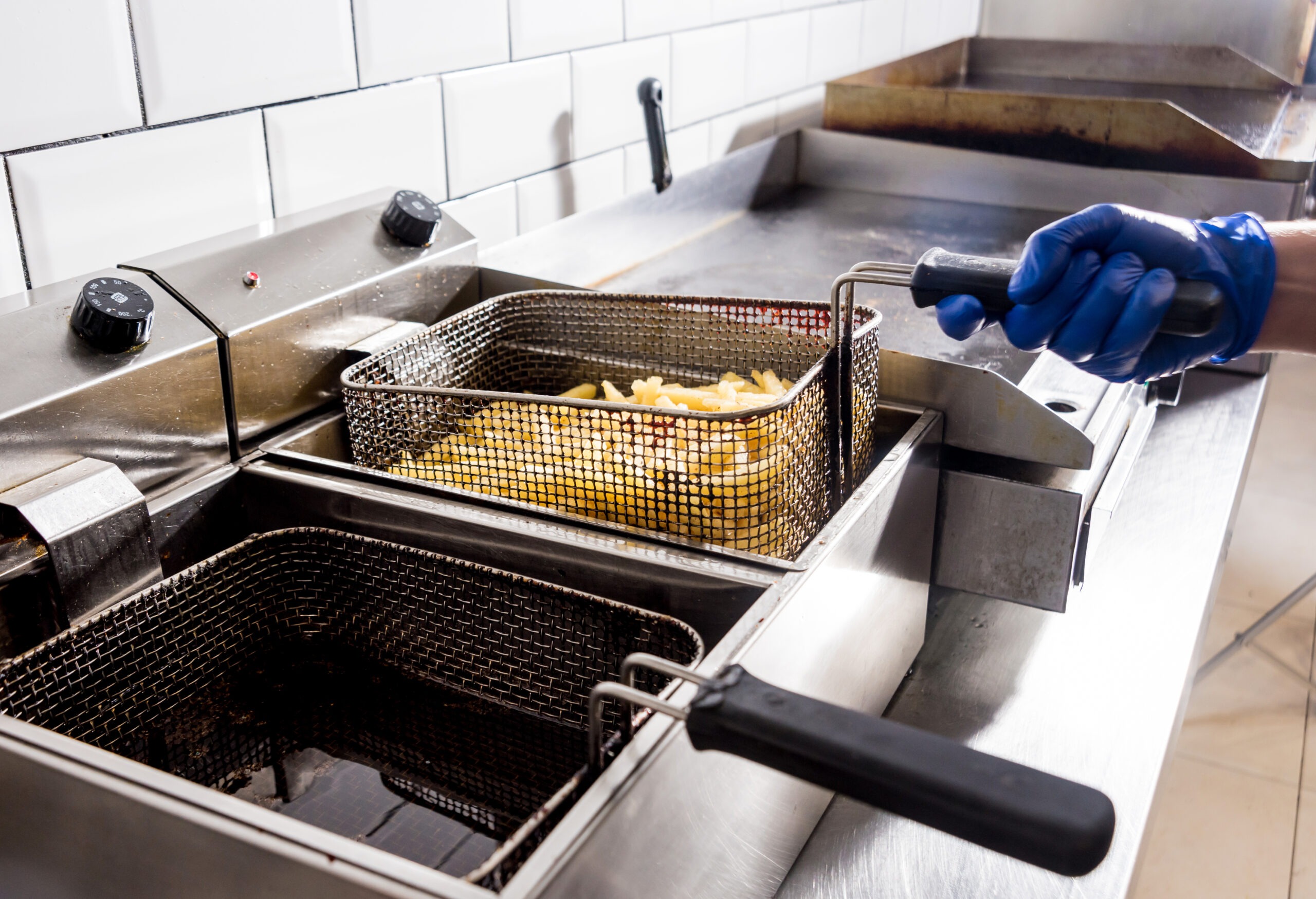When it comes to commercial deep frying, choosing the right oil can impact both your kitchen’s safety and the flavor of your fried dishes. A large commercial fryer holds several gallons of oil, so opting for a high-quality, cost-effective oil that withstands heat and preserves taste is essential. Selecting the best oil will ensure that your food turns out crispy and delicious while also minimizing waste and expense. Here, we break down the best options for your deep fryer and how they can impact your restaurant’s bottom line and environmental footprint.
Why Choosing the Right Oil Matters
For restaurant kitchens, oil is not just an ingredient—it’s an investment. The type of oil you select can influence:
- Flavor Profile: The oil should complement, not overpower, your food’s flavor.
- Health Considerations: Health-conscious consumers look for lower saturated fats.
- Cost Efficiency: Some oils break down faster, which means they need to be replaced more often, increasing costs.
- Environmental Impact: Proper disposal and recycling of used oil is essential for a sustainable business operation.
Top Oils for Commercial Deep Frying
Each oil has its own benefits and trade-offs, from smoke point to flavor neutrality and cost. Here are some of the most popular choices for commercial

kitchens:
Peanut Oil
- Flavor: Mild and slightly nutty
- Smoke Point: 425–450°F
- Cost: Mid-range
- Peanut oil is known for its high smoke point and subtle, nutty flavor, which works well with a variety of foods. However, peanut allergies should be considered before using this oil.
Canola Oil
- Flavor: Neutral
- Smoke Point: 350–400°F
- Cost: Affordable
- Canola oil’s neutral flavor and low saturated fat content make it a popular, cost-effective option for high-volume frying. Its fatty acid profile also makes it one of the healthier choices for deep frying.
Soybean Oil
- Flavor: Neutral
- Smoke Point: 400–450°F
- Cost: Affordable
- Widely available and economical, soybean oil is suitable for high-temperature frying. Its neutral flavor lets the food’s natural taste shine through, making it a versatile option.
Sunflower Oil
- Flavor: Mild
- Smoke Point: 440–450°F
- Cost: Moderate
- Sunflower oil’s high smoke point ensures food remains crisp and golden without becoming overly greasy. It’s a great choice for extended frying sessions.
Cottonseed Oil
- Flavor: Mild, nutty
- Smoke Point: 420°F
- Cost: Affordable
- This oil is popular in Southern-style cooking and is stable at high temperatures. It can be used multiple times, making it budget-friendly.
Avocado Oil
- Flavor: Mildly sweet and buttery
- Smoke Point: 520°F
- Cost: Expensive
- Known for its health benefits and extremely high smoke point, avocado oil can be a premium option for upscale kitchens focused on healthier menu options.
Blended Vegetable Oils
- Flavor: Neutral
- Smoke Point: 400–450°F
- Cost: Affordable
- Blended oils are versatile and affordable, often combining canola, soybean, corn, or sunflower oil. These blends can be tailored to a variety of frying needs, offering consistency without breaking the bank.
Oils to Avoid for Deep Frying
Certain oils don’t hold up well in commercial fryers and can compromise food quality or safety. Avoid using:
- Extra Virgin Olive Oil: Low smoke point, bitter when overheated.
- Coconut Oil: High cost, though stable, better suited for baking.
- Butter or Margarine: Low smoke points, burn easily.
- Flaxseed, Walnut, and Sesame Oils: Distinct flavors with low smoke points, ideal for finishing rather than frying.
Deep Frying Tips to Prolong Oil Life
- Regular Filtering: Filtering oil daily helps remove food particles that accelerate oil breakdown.
- Maintain Proper Temperatures: Keeping the fryer temperature stable reduces the risk of burning oil.
- Frequent Testing: Monitor the oil’s color and smell to determine when it needs replacing.
Disposal and Recycling: Partner with Mopac for a Greener Solution

With Mopac, you can ensure environmentally friendly disposal of your used oil. Our regular pickups and transparent rebate process make it easy to partner with us. Mopac not only collects your oil but also recycles it into renewable biodiesel, supporting a circular economy that benefits your business and the planet.




